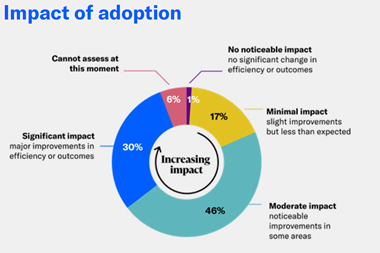Gillian Eastwood and Paul Lomas summarise the current extradition arrangements in the US and UK, assess the change in the extradition risk and outline some practical steps for managing it.
Recent events have provided the UK's corporate community with an opportunity to reflect on its exposure to the criminal justice system in the US. This year, after a long battle, the NatWest Three were flown to Texas to face charges of fraud linked to the collapse of Enron. Jerry Crook, a former software executive has been extradited to California, and the US is still pursuing the extradition of Ian Norris, the former CEO of Morgan Crucible, in connection with alleged illegal price fixing.
US/UK extradition treaty
In March 2003, the US and UK signed an extradition treaty that introduced the notion of 'fast-tracking' extradition by removing the need to establish a prima facie case against the individual whose extradition is sought. The treaty was ratified in the UK and its terms were enacted in the Extradition Act 2003.
This Act outlines the procedure that must be followed for extradition to category 1 territories (mainly European countries, thereby implementing various Community law obligations, unconnected with the Treaty) and category 2 countries. Within category 2, certain countries have been singled out as designated territories by Order in Council and this designation means that a country can seek to extradite using the fast-tracking procedure outlined above. It follows that, when using the fast track, a foreign prosecutor must allege conduct that (i) occurs in (or is subject to the extra-territorial jurisdiction of) his country and (ii) would be an offence under the law of the UK punishable by more than 12 months.
The US is a category 2 territory under the Act and has been identified as a designated territory. It therefore enjoys the benefits of the fast-track scheme.
Assessment of the risk
These new extradition arrangements are considered controversial for a number of reasons.
For the UK to extradite from the US it must still produce evidence to show probable cause. The Treaty, which was finally ratified by the US in September this year, creates an asymmetry and entrenches the need for the UK to show 'such information as would provide a reasonable basis to believe that the person sought committed the offence' without requiring the same of the US in its requests for extradition from the UK.
The Home Secretary's discretion to refuse extradition, if considered inappropriate in all the circumstances, has been removed by the Act. Although this political power was rarely exercised, it provided an avenue of last resort that is no longer available. It is doubtful, however, that this discretion would ever have been exercised to prevent an extradition to a friendly country with a stable criminal justice system, where there were clearly reasonable grounds.
The UK is increasing the scope of criminal sanctions (see, for example, antitrust law and liability for overseas corruption). This trend may increase the scope for and likelihood of the double criminality test for extradition (that is, the facts must give rise to criminal liability in both the UK and the US) being satisfied.
Combined with the US's rapidly increasing criminalisation of corporate activities and an active prosecution environment, there seems to be an increased risk of UK citizens being extradited to the US. The expansive view of jurisdiction taken by US prosecutors has meant that acts involving limited US contact (for example, the use of a US telephone line when calling from abroad) can in theory be prosecuted. As a consequence, companies that do not do business in the US still need to be aware that even limited contact with the US means they must comply fully with US laws.
The imbalance remains
In autumn this year, the House of Lords proposed an amendment to the Act that would remove the US as a designated territory, thereby revoking its access to the fast-track procedure. The current extradition arrangements were also vigorously debated in the House of Commons and the Lords' amendment was, ultimately, rejected. Consequently, the asymmetry of procedure will persist for the present time. More difficult to assess is whether extraditions using the fast track procedure will also eventually become available for UK prosecutors, but this will be problematic given the recent general political stance of the US over making its citizens vulnerable to criminal process overseas.
Managing the risk
In reality, it is difficult to manage the risk of extradition.
It is important that companies and corporate advisers pay strict attention to the individual criminal risks in the UK and the US, including antitrust, corruption, fraud, misrepresentation and conspiracy. They need to be sensitive to such issues and take advice at an early stage if they feel that they are in dangerous waters. An imaginative and active strategy with the criminal authorities will often help to deal with such problems if they arise.
Directors' and officers' (D&O) insurance policies generally exclude losses arising from criminal activity; however, the costs of defending criminal proceedings are often covered if the defendant is ultimately acquitted. The wording of many current UK policies is unclear as to whether the (potentially substantial) costs of defending extradition proceedings are covered. Many underwriters are modifying their policies to deal expressly with the point.
Companies and their boards would be well-advised to check their policy wordings carefully and to seek clarification from their brokers where necessary. In addition, companies may wish to check the terms of any indemnities offered to directors, to ensure that they are clear and operate smoothly and consistently with the company's D&O insurance.
Companies should also review their coverage relating to US liabilities, including US defence costs. Many UK companies conducting little or no material business in the US have low limits for US liabilities, or even a specific exclusion. In light of the potentially increased risks, previous levels of protection may now seem inadequate.
It is important to keep this in context, however. In both the Norris and NatWest Three cases, it has been suggested that it might have been possible for the prosecutor to have met the probable cause test, and it was by no means obvious that the Secretary of State would have exercised his discretion against extradition, on the facts of either case.
Moreover, the Department of Justice and the Serious Fraud Office have recently been anxious to send out signals that the actual frequency of extradition requests has been lower than some more alarmist comments would suggest, and mostly occurred in cases that were obvious, and also that there was no expectation of a wave of applications. In the light of the recent political furore, it seems likely that there will be some restraint. Thus, the message is probably to be cautious in areas where there might be risks of criminality, to be vigilant on all aspects of compliance and good governance, but not to over-react, evaluating the experience over the next year as the intense heat of these recent events fades.
This feature is based on a Freshfields Bruckhaus Deringer briefing. Gillian Eastwood: Tel: 020 7832 7284, E-mail: gillian.eastwood@freshfields.com, and Paul Lomas: Tel: 020 7832 7059, E-mail: paul.lomas:freshfields.com
D&O MARKET VIEW
Most if not all D&O insurers are currently of the view that the costs incurred in fighting extradition would be covered under a normal D&O policy, says The Willis Index Directors' and Officers' Autumn 2006. This opinion is formed on the basis that a D&O policy provides coverage for 'defence costs', which commonly embraces all reasonable costs that are incurred in defending a claim against an individual director or officer. This is not an unreasonable view especially as D&O policies do not specifically exclude the extradition risk.
To date the issue has not been tested and Willis says that, when faced with substantial costs insurers will naturally examine the specifics of the issue in conjunction with their policy language. Most insurers are clarifying their policy language to state that 'extradition costs' - which would extend to the costs of bringing an action to fight an order - would be included within the definition of defence costs. However, Willis advises businesses to consider the following issues.
Jurisdiction
For smaller risks it is common for insurers to impose limitations relating to claims arising in the US or filed under US jurisdiction. The policy should provide coverage for litigation in any jurisdiction.
Dishonesty exclusion
A director or officer cannot expect a D&O policy to provide protection for a proven illegal act. This would be against public policy and it is for this reason that today's D&O policies are designed only to include coverage for criminal prosecutions where the defence is successful. It is important to recognise that once there is a determination of guilt, the exclusion applies and insurers have the ability to: withhold any further payments (despite any comment relating to the cost of appeal); seek recovery of any advance payments, and argue that any indirectly related claims are also excluded.
Defence costs
The definition of defence costs naturally needs to be broadly drafted so as to capture the full range of legal costs involved in the defence or settlement of a claim. It is also important to be clear on what constitutes a 'claim', since many insurers only provide cover for defence costs that are related to a claim for financial damages.
Deductibles
The principle of 'presumptive indemnity' is embraced within the policy to the extent that an insurer will rely on the company indemnifying its directors and officers in the first instance of a claim. This means insurers will naturally not want to make any advance payments until the company reimbursement deductible is exceeded. It follows that each company should be clear on the extent to which it can and will indemnify its directors and officers in the case of an extradition.
Advancement of defence costs
Advancement of defence costs is commonly provided, but the language of the provision is hugely important since no two insurers necessarily treat advancement in the same manner. Some insurers will only advance what they believe is reasonable and fair, irrespective of what the policyholder's view is, at a time of their choosing. Clearly any advancement related to the defence of a criminal prosecution will test an insurer's resolve if they believe they will not be able to recover their outlay following a successful prosecution.
Severability
A D&O policy is a collective policy whereby each individual should be treated in their own right. Consequently, the actions of one director should not be imputed to any other for the purposes of determining cover under the policy. The problem is that different insurers deal with this principle in different ways and this inconsistency leads to a differing interpretation of the dishonesty exclusion.
Willis also advises policyholders and directors and officers to think about instigating internal measures that can be made available in the event of an extradition problem. It says that some institutions are looking at putting in place formal procedures with an easy access to funds.



















